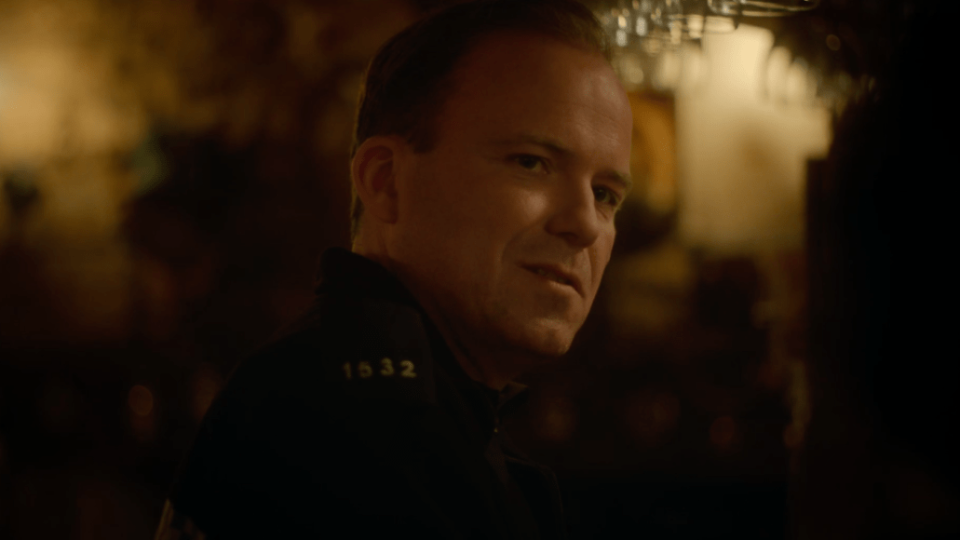Jessie Buckley Tries to Heal But Finds Hell in A24’s Nightmarish Men: Review
- Oops!Something went wrong.Please try again later.
The post Jessie Buckley Tries to Heal But Finds Hell in A24’s Nightmarish Men: Review appeared first on Consequence.
The Pitch: Harper (Jessie Buckley) reels from the tragic, violent, and very recent end of her abusive marriage to James (Paapa Essiedu), taking solace in a weekend stay at a modest cottage in the bucolic English countryside. Her landlord Geoffrey (Rory Kinnear) seems nice, grinning and accommodating through his mop of shaggy hair and thick chiclet teeth.
But as she explores the verdant woods and paths around the small village, her interactions with the various men she meets (all played by Kinnear, aided by costume, wig, prosthetics, and CGI) carry one flavor or another of charged misogyny. What’s more, one vagrant in particular seems to be stalking her, menacing her with his maleness. Soon enough, she’ll have to survive the night — and hold onto what’s left of her sanity.
Harper’s Bizarre: While filmmaker Alex Garland is most often concerned with the encroaching reach of technology and its attendant philosophical consequences (see: Ex Machina, his recent FX miniseries Devs), his latest, Men, veers away from the science fiction auspices of his previous works in favor of the longstanding tradition of British folk horror.
It’s got all the signposts of a really solid example of the genre: the modern protagonist fleeing the city for the wild, pagan ways of the British wilderness, the strange townspeople who look askance at our interloping protagonist, the obsession with nature and fertility as fuel for terror.
And Garland, with his penchant for inscrutability, is an easy mark for the kind of atmosphere this kind of film engenders. Cinematographer (and Garland regular) Rod Hardy melds the verdant greens of the trees and plains Harper walks through with the blood-red walls of her cottage, feeling both distant and deeply, unsettlingly intimate. Ben Salisbury & Geoff Darrow’s eerie, vocals-heavy score literally echoes throughout the picture, a clarion call to mysterious forces beyond our ken.
Men (A24)
Buckley, for her part, carries the film well — between this and I’m Thinking of Ending Things she’s certainly proven an affection for nightmarish movies about women tormented by egotistical boyfriends and husbands. It’s unfortunate, then, that Garland keeps Harper at such an emotional distance from us, defining her mostly by her own grief and leaving Harper a more reactive character than anything else.
Instead, Men focuses itself, fittingly, on the men in the picture, the cavalcade of husbands and Kinnear-faced townspeople who inflict their wants and needs on her. As virtually every man you see, Kinnear’s terrifying, a multi-faceted performance that flips through every trick in the PUA rulebook: the nice guy, the menacing alpha, the dismissive protector, the desirous councilor.
There’s the nagging feeling that all these people are one creature, an ur-man whose motivations and true nature are obscured from Harper’s (and our) sight. In his own brief appearances, Essiedu is equally horrifying, the kind of man who knows just how to control his partner while still making her feel like the bad guy. (That said, there’s likely a lot to unpack about Garland’s leering obsession with the mutilation of a Black person’s body at a vital moment.)
Girls, What’s My Weakness? As the title implies, Men is about, well, men, and the oppressive, manipulative power even well-meaning men try to exert over the women in their lives. Throughout the film, Harper is plagued by two distinct men: There are flashbacks to her final days with James, whose circular arguments and passive-aggressive laments make trying to leave him sheer agony.
But then she leaves for Geoffrey’s cottage, and every man she meets does the same thing in one way or another: the nude stalker makes her feel unsafe in her home without doing anything the jaded local cop can consider actual “stalking”; the young boy offers to play hide and seek, but then calls her a “bitch” for refusing; the vicar offers a supportive hand in her troubles, but that sympathy quickly turns to unrequited desire.
On a scene-to-scene basis, Garland nails the tension and the discomfort women may feel in men’s spaces, styling most scenes in the first act as a countdown to see how long it’ll be before the Rory Kinnear she’s talking to will suddenly turn on her. (Then, of course, when she expresses said discomfort, the impotent rage and defensiveness from the man himself, which proves just as horrifying as anything in the film.)
Then things build in size and scope until the final act, which tilts head-long into abstracted, horrifying vignettes that deliberately thumb their nose at direct interpretation. It’s a crimson fever dream of a climax, replete with chases, suspense, and some of the most surreal, stomach-churning body horror you’ll see this year or any other. (In a recent Q&A, Garland outed himself as a big fan of Attack on Titan, if that gives you an idea of the grotesque beauty of distorted human bodies in store.)
But for as horrifying as it all is, the ideas underpinning them feel frustratingly flat and one-dimensional: apples (“forbidden fruit,” Geoffrey transparently quips of them early on) tumble from a tree, a reminder of Eve’s original sin amongst the Edenic environment of the film’s setting. Pagan images (the sheela-na-gig, the Green Man) and body-twisting setpieces turn the act of childbirth into an ominous, horrifying act, as well as one that perpetuates the same cycles of abuse we’re all trapped in.
Men (A24)
In some ways, Men isn’t that dissimilar to Edgar Wright’s Last Night in Soho: a stylistic exercise from a male filmmaker trying desperately to explore gendered abuse and violence against women, but who fails to give the woman at its core sufficiently interior life. There’s a lurid fascination with the evils men do, and the cravenness by which we do it, that feels solipsistic more than self-reflexive. No matter how startling the imagery, one can’t help but feel that it’s in service of punching at easy, unsubtle targets at the expense of the very people for which it’s trying to advocate.
The Verdict: What makes Men so startling and unique — its atmosphere and presentation — often overlaps with what makes it one of Garland’s least successful works. There’s an inaccessibility even to his best stuff, a navel-gazing opaqueness that lends a sense of terrifying grandeur to the Big Ideas he likes to discuss. But strip away the pitch-perfect atmosphere and the genuinely unsettling climax, and his ideas feel shallower than they’ve ever been.
Men feels like the kind of feminist picture a man who “gets it” would write and create, an olive branch extended to the opposite sex copping to men’s capacity for incredible abuse and torment that doesn’t fully grasp what the woman on the receiving end of that abuse would actually be like. For a film so dedicated to understanding the isolation women feel when they’re stripped of autonomy (a prospect many of us are feeling of late, given recent Supreme Court decisions), it fails to make them feel like autonomous beings themselves.
Where’s It Playing? Men gaslights its way into movie theaters May 20th.
Trailer:
Jessie Buckley Tries to Heal But Finds Hell in A24’s Nightmarish Men: Review
Clint Worthington
Popular Posts
Joan Jett Hits Back at "Tough Guy" Ted Nugent: "This is the Guy Who Shit His Pants"
Fred Savage Fired from The Wonder Years Reboot Following Allegations of Misconduct
HBO Introduces Game of Thrones Prequel House of the Dragon in First Teaser: Watch
Frank Langella Says He's Been "Canceled" After Netflix Fired Him for Misconduct



